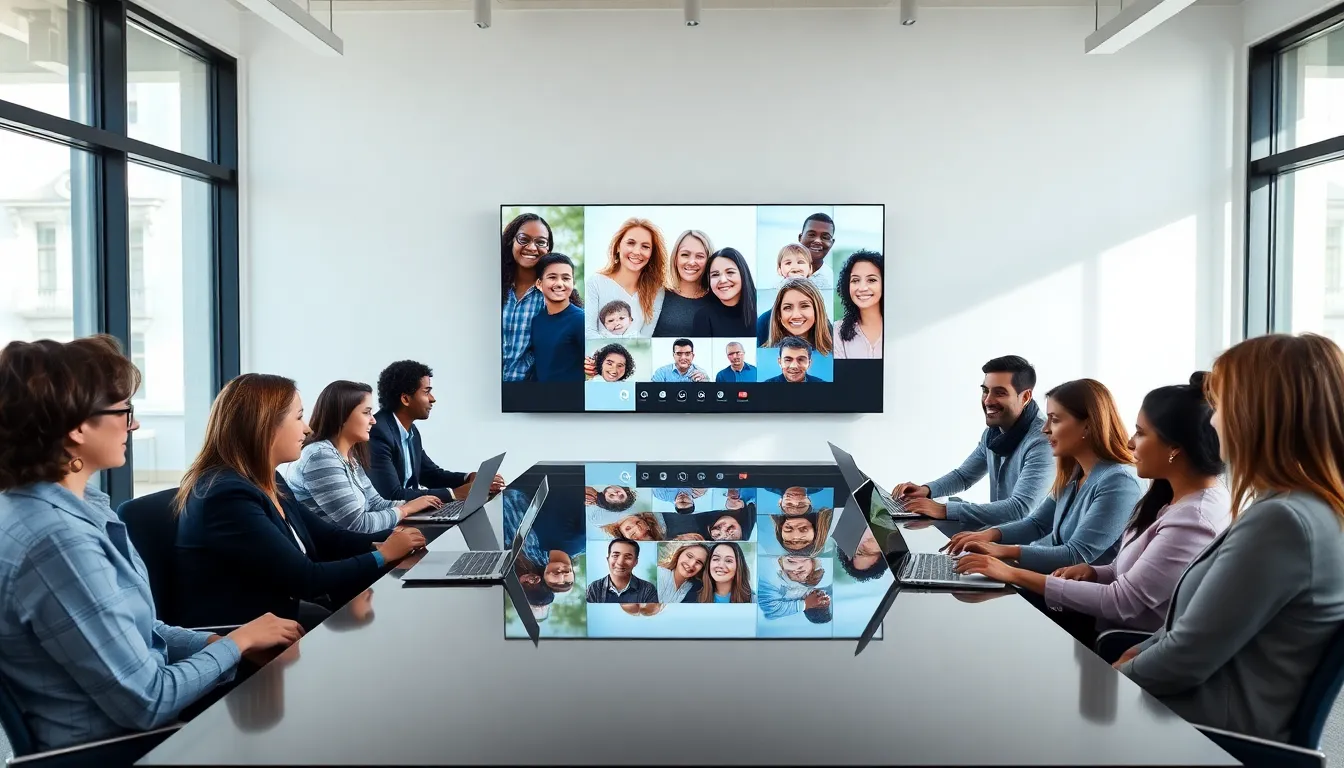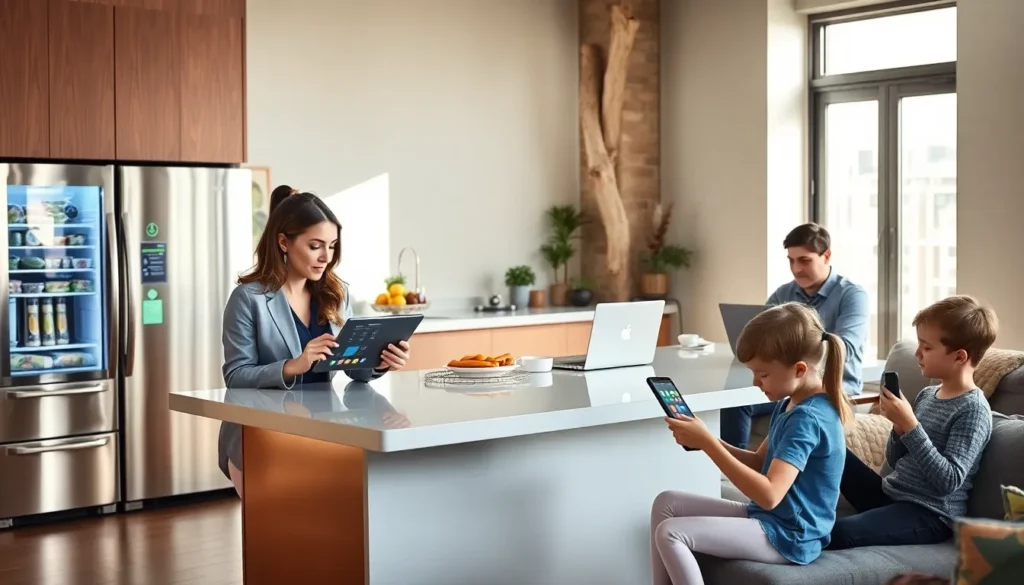In a world where it feels like technology is practically glued to our hands, one has to wonder, what happens when we actually let it in? From texting a friend across town to managing a smart fridge that can remind you to grab milk, technology plays a vibrant role in daily life. This isn’t just some sci-fi dream: it’s the reality we live in. Immerse with us as we explore how tech intertwines with our daily activities and brings a pinch of both convenience and chaos into our lives.
Table of Contents
ToggleThe Role of Technology in Communication

Impact on Personal Relationships
Consider how communication has transformed. Gone are the days of waiting by the landline, fretting over missed calls. They’ve been replaced by instant messaging apps and video calls that allow us to share moments in real-time, regardless of distance. This evolution has brought friends and families closer, and many can attest to a more interconnected social fabric.
Social Media and Connectivity
Social media platforms have taken that a step further. Friends from childhood, colleagues from distant cities, and even long-lost family members can reconnect effortlessly. Sharing life’s milestones is easier than ever, yet one must also ponder: does this connectivity foster genuine relationships or merely form a surface-level bond?
Challenges of Digital Communication
Even though the apparent advantages, digital communication isn’t without its pitfalls. Misinterpretations abound in texts devoid of tone and body language. Emojis can only do so much. Also, the sheer ease of online interactions can lead to misunderstandings, conflicts, or a false sense of intimacy.
Digital distractions can also result in decreased focus. Ever tried having a meaningful conversation while scrolling through your feed? It hardly works. Balancing digital outreach with authentic connections can be intricate.
Technology in Education
E-Learning and Online Resources
Educational technology has revolutionized how students learn. E-learning platforms offer a vast wealth of materials, turning conventional teaching on its head. Students can jump into video lectures or interactive quizzes at their convenience. It’s as if every student has their personal tutor right at their fingertips.
The Shift from Traditional to Digital Learning
Also, the transition from traditional classrooms to digital ones has sparked engaging discussions. Classrooms are no longer confined to four walls. Students can connect and collaborate globally with varied learning experiences that cater to diverse styles.
Technology in Health and Wellness
Wearable Technologies and Fitness Trackers
Technology’s impact also extends to health and wellness. Wearable devices like fitness trackers and smartwatches encourage physical activity by monitoring heart rates, steps taken, and even sleep patterns. They are little reminders to keep moving, ensuring that users stay engaged with their health.
Telemedicine and Remote Care
Telemedicine has also emerged as a game-changer, allowing remote consultations with healthcare professionals. Imagine skipping the dreaded waiting room and seeking medical advice from the comfort of home. This innovation increases access to care, especially for those in rural areas.
Smart Home Innovations
Home Automation Devices
Smart home technology has rewritten the rules of domestic living. Appliances that can be controlled by voice, security systems that send alerts when unusual activities occur, and energy-efficient devices that monitor consumption, this technology brings unparalleled convenience into everyday life.
Energy Efficiency and Sustainability
Also, smart home innovations contribute to sustainability efforts. By optimizing energy use, homeowners can lower their bills while being kinder to the planet, a win-win in today’s environmentally conscious age.
Balancing Technology Use in Daily Life
Digital Detox and Mindfulness
Amidst all these benefits, there’s an emerging trend of digital detoxes. More individuals are recognizing the importance of disconnecting to reconnect with the real world. Unplugging from screens allows for mindfulness, enabling one to appreciate the present, engage in traditional hobbies, or rekindle interpersonal relationships.
Setting Boundaries with Technology
Establishing boundaries with technology is another crucial factor. Time management apps, device settings for notifications, or even scheduled screen-free periods empower individuals to take charge of their tech usage, ensuring a healthy relationship with their devices.





